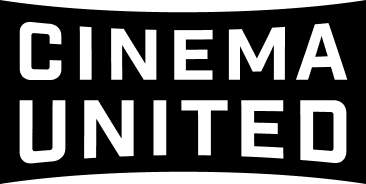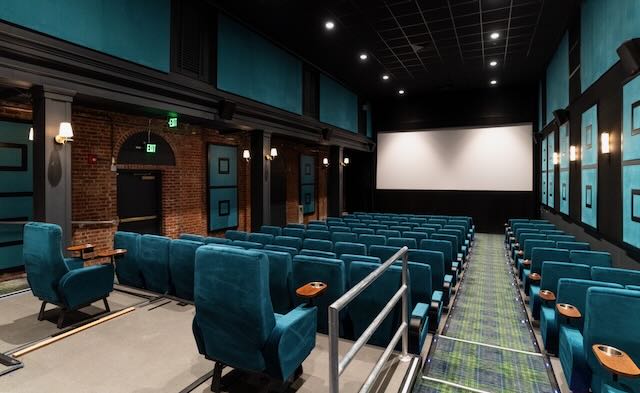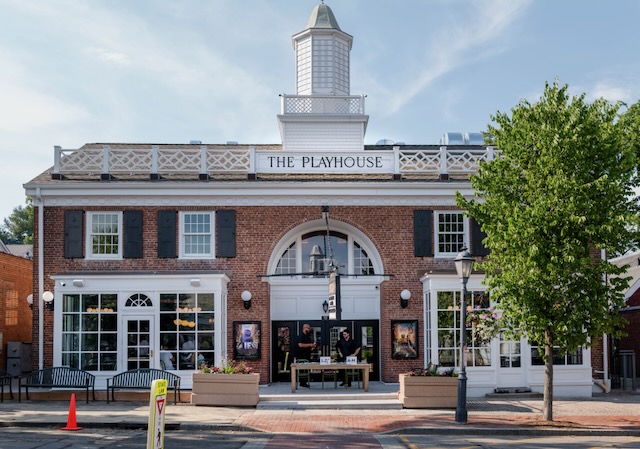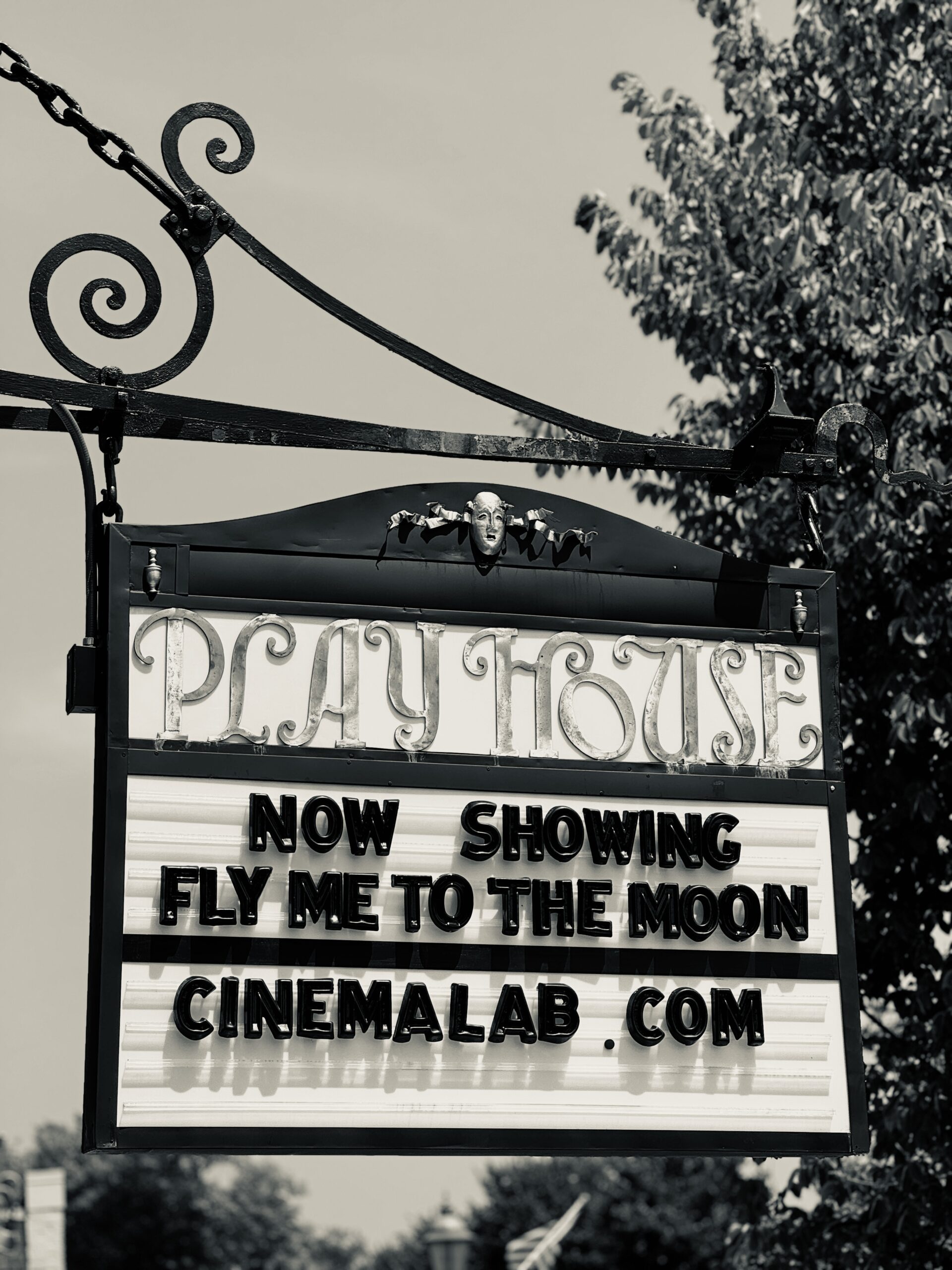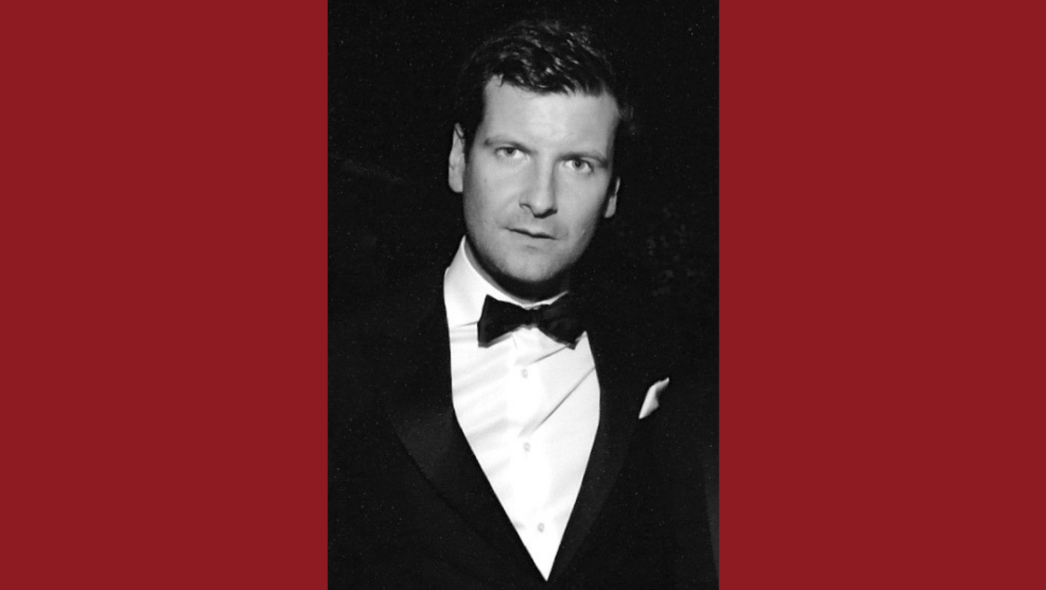
Luke Parker Bowles

Member Profile
How has Cinema United membership been impactful to you and/or your business?Firstly, thank you for having me—and kudos on the new look and feel. It’s cosy in here!
For me, coming from film and television production with only a limited understanding of exhibition, Cinema United has been—and continues to be—an indispensable guide. Not just one roadmap, but many: daily, even hourly, directions through the complex and often chaotic mechanics of the business. These maps have helped me understand who shaped the exhibition landscape, how the studio system works from the exhibitor’s side, and so much more. The wealth of resources—whether in print, through lectures, or from the extraordinary minds at Cinema United—has been invaluable. Most of all, I remain genuinely inspired by Cinema United’s thoughtful, innovative, and forward-thinking approach to redefining the cinema experience.
Very simply: my children.
Not so long ago, before your local cinema turned into a cultural artifact—or worse, an AT&T store—it was the beating heart of the community. Cozy, clean, buzzing with energy, and drenched in escapism, it was a safe haven for families, especially kids. My eldest, Lily, and her gang practically lived there.
Now? They hang out in the CVS parking lot. All of them.
Surely this wasn’t where we were headed as a culture (and for context, this was pre-January 2017 and pre-January 2019). So a plan was hatched—by a scrappy band of friends from film, TV, exhibition, marketing, retail, and hospitality—to try, in our own small way, to change that.
At Cinema Lab, we have the absurd privilege of bringing local cinematic landmarks back to life. We blend regional and era-specific design with cutting-edge technology and thoughtful aesthetics—courtesy of our award-winning partners at DNA Design Co. And yes, we build a Pub (a bloody pub!) at every location. Not some “Evenin’, Guvnor” EPCOT knockoff—a proper English pub, complete with a 200-year-old bar rescued from a shed in Vermont, for example.
We also create beautiful members’ club spaces where people can work, think, not think, meet, laugh, throw a party, host a show, or get obliterated on backgammon night. To quote my Cinema Lab partner and Co-Chairman Brandon Jones (yes, that Brandon Jones—I know, I know), we’re in the “going-out” business.
We work with people we’ve never met, in towns we’ve never been, with tastes we don’t yet understand—and we get to listen, learn, and watch them be moved by the effort. That’s the fix.
On a personal note, I love our staff. (And no, I’m not being a politician—so slow your roll.) They’re young and less young, but every one of them lives for film. This isn’t a summer job. The ritual of firing up the popcorn machine is sacred. They can explain Nolan’s obsession with time, debate Belloni’s latest The Town episode, or share opinions on Zaslav and the HBO bloodletting. They dribble like tikes over the slightest education on projection, be it physical film, DCP or whatever form it will take next week. They clean auditoriums not just to clean, but because they want you to experience the movie as they believe you should: comfortably, cleanly, and undisturbed.
They’re stunningly smart, fun, thoughtful, hardworking, passionate, and kind. (Vomit if you must, but that’s my story and I’m sticking to it.)
I’ve been lucky to have a riveting, eye-opening early career across talent agencies, independents, mini-majors, studios, publishers, tech companies, and streamers—whether at Working Title, ICM, Open Road, Hart Sharp, or Story Mining & Supply Co., where I still produce film and television with my partner, Jim Kohlberg.
That said, whether as an exec or a producer, your job is to manage drama—both on screen and off. You’re a fireman, a psychiatrist, a negotiator, an accountant, a secretary, a dancer—and even when you nail it, you still haven’t really nailed it. Some say that’s the thrill. I know many of those people. They’re charming, brilliant, and some of the sweetest psychopaths you’ll ever meet.
So, yes—every moment on the exhibition side of the screen feels like a delight by comparison. If I HAD to be specific – it would have been discovering deeply-hidden tin roofing while excavating The Playhouse and our team repurposing it for the Pub.
ALSO – The Studio’s take on CinemaCon was spot-on, down to the Cranston.
Member Gallery
This isn’t my proudest moment—but it is about moviegoing.
My name is Luke, as I think I have established.
It was 1983.
I was nearing six.
RETURN OF THE JEDI had been released.
My mother, possibly fearing early-onset amnesia, bought me a knitted sweater with my name in giant red letters: LUKE. We were en route to see Superman III at the Odeon on Kensington High Street—ground zero for overcaffeinated studio marketing departments. Just outside the cinema loomed a very tall man dressed as Darth Vader, promoting the aforementioned film with what I can only assume was a disturbingly sincere level of method acting.
He saw me. Locked eyes. Made a decision.
Clearly, it had been a slow afternoon in costume land, because with all the theatricality of a Shakespearean understudy desperate for stage time, he swished and stomped toward me, pointed a red, pulsating, silver-coloured plastic lightsaber at my chest, and announced—loudly—
“I am your father.”
Naturally, I wet myself. Then cried.
My parents, displaying the steely compassion for which British parenting in the 1980s was so renowned, promptly apologised—to him.
They were not what you’d call gentle about it.
I was sent to boarding school the following year. I’ve been assured the two events were entirely unrelated. Though I do have my doubts.
The rest is a blur.
(I should have talked about how LA HAINE changed my life. Next time.)
Cinema will survive—not because the films have miraculously improved (they haven’t), but because theatres, against all odds and a good deal of common sense, are evolving. Audiences have become maddeningly discerning (and quite right too), but clever programming, full-fat community charm, singalongs, nostalgia-soaked throwbacks, family bait, and knowing more about TikTok than is strictly decent for anyone over 30—these are keeping the projectors whirring.
The smart independents aren’t chasing capes and explosions. They’re succeeding by knowing their crowd, speaking their language, and giving them a reason to leave the house that doesn’t involve queueing at a soulless chain for tepid gruel.
Pandemics? Strikes? Tariff-fuelled hissy fits? Studio-induced whiplash? All endured. The secret? Adapt. Connect. Serve something a touch more nourishing than £9 popcorn. And wouldn’t you know—it’s working. People still show up. Imagine that.
